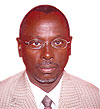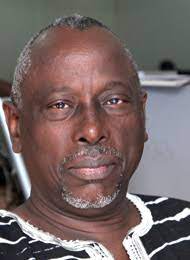The United Nations has done it again. The organization has once again shown its incompetence, bias, malice and an inexplicable grudge against a country that, against all odds, still stands strong. But that is to be expected. In its more than fifty years of meddling in the Great Lakes Region, the UN has never got it right and probably never will.


The United Nations has done it again. The organization has once again shown its incompetence, bias, malice and an inexplicable grudge against a country that, against all odds, still stands strong.
But that is to be expected. In its more than fifty years of meddling in the Great Lakes Region, the UN has never got it right and probably never will.
The UN’s most recent blunder is the UN Human Rights Commission report leaked to the media last week that alleges that Rwandan troops committed genocide in Congo. Naturally the Rwandan government has dismissed it as shoddy and a disgrace politically and methodologically.
The professed aim of the report, according to its authors who, incidentally choose to remain anonymous (perhaps admission of ill motive?), is to make the Congolese come to terms with their past. Pray, how, when all they are doing is sowing seeds of hatred between communities and countries, and deliberately misplacing culpability for atrocities committed in this region?
The real aim is a sinister cover up of responsibility, a deliberate smear of a heroic and disciplined force and an attempt to scuttle peace efforts in the region. This becomes clear when we look at the people and groups involved in the compilation of the report.
First, it has been reported in various media, that Mr Kofi Annan, former Secretary General of the UN, was the chief sponsor of the report, that it was one of the last things he did as secretary general. Kofi Annan’s action meant that financing for the study was in place and that it would happen.
Kofi Annan is not exactly a saint when it comes to his role in the genocide in Rwanda and subsequent events in Congo. There is a huge amount of documentary evidence that shows that Annan, as the UN’s man in charge of peace keeping operations, turned a deaf ear to warnings and pleas from his own commander in Rwanda, General Romeo Dallaire, that genocide was being planned and executed in Rwanda.
His surprise response to all these pleas was to recommend the reduction and withdrawal of peace keeping troops from Rwanda. What followed that decision, the whole world knows, was the killing frenzy of more than a million Tutsi in less than one hundred days. It was inevitable that the RPA would stop the genocide and that its perpetrators would flee to Congo.
The inevitable conclusion from Annan’s institution of the study, according to many analysts of his action and the contents of the report that came from it, is that this was an attempt to exculpate himself from his mishandling of the genocide and its aftermath in Congo by blaming others for the gross crimes of that period. If this is his intention, he has chosen the path trodden by genocide deniers – that of double genocide.
The other groups involved in the report are human rights organisations and NGOs. These too share culpability. When the genocide was raging in Rwanda, and the RPA fought to stop it and in the process sent its perpetrators fleeing into Congo, the NGOs and human rights groups abandoned the dying and the wounded and followed the fleeing genocidaires.
There, together with the UN, they settled them into camps and provided them with relief supplies. More significantly they did not stop them using the camps to reorganise militarily and rearming. Refugee camps in effect became garrisons of an extra-territorial army that continued to wage war on Rwanda.
The UN and NGOs housed, administered, fed and clothed an army that had committed genocide and that was still carrying out military campaigns against survivors of that genocide and the forces that had stopped it.
It was inevitable that Rwandan forces would attack and destroy the army garrisons in UN-run camps, and that innocent refugees who had been held hostage would seize the opportunity to break free and return home. They did so in their millions and were warmly welcomed and resettled in their homes. Those guilty of genocide fled farther into Congo.
Naturally UN agencies and relief organisations were angry that the Rwandan army had done what they had failed or, more likely, refused to do. For the NGOs the anger had more to do with what they viewed as an existential threat.
The destruction of the camps meant that their very reason for existence and source of funding had been removed.
Both the UN and relief agencies never forgave the RPF-led government for the destruction of the camps and repatriation of refugees. They kept a grudge, the results of which we now see in the leaked UN report.
In subsequent years, the emergence of Rwanda as a strong state and prospects of peace and stability in the region have led to fears by the many relief agencies and rights groups that they may soon become irrelevant.
In a twisted sense of humanitarian concerns, these groups would gladly see all efforts of stable development and peaceful relations between communities and countries in the great lakes region scuppered so that they can continue to be of "use”.
Their UN allies have other things to hide. The same week the report was leaked, nearly two hundred women and girls were raped by rebels a stone’s throw away from peace keepers on whom the UN spends billions of dollars. The same peace keepers have committed sex crimes in Congo. They have also sold arms to rebels.
The political mess in Congo can be traced to UN incompetence going back to the time the country gained independence. Attempting to clean its image by blaming its failures on Rwanda does not help.
It would be more useful for individuals within the UN and the institution itself to confess their failings and seek forgiveness as others have done. They will get it. Rwandans are magnanimous people.


